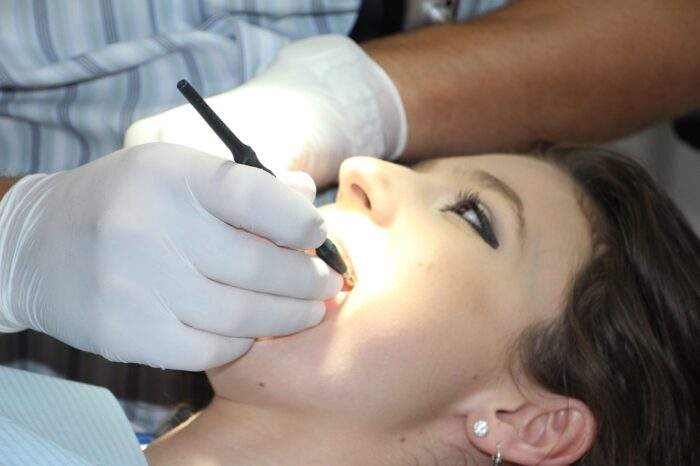Guide to Selling Dental Benefits for Small Businesses: What You Need To Know

Dental insurance is an important selling point for small businesses. It can boost your closing rate significantly.
Offering cost-effective dental benefits is essential for employers looking to attract and retain talent in today’s competitive talent market. Learn how to sell these valuable plans with Bento.
Understand the Value of Dental Benefits
Dental care is an essential part of overall health. As such, it makes sense for small businesses to offer their employees robust dental benefits. Moreover, dental benefits are powerful ancillary products that complement a client’s other insurance offerings, such as life and medical coverage. Brokers can sell dental benefits for small business and help their clients understand the value of these ancillary benefits by explaining the connection between oral health and overall health.
A common type of dental plan is a dental Preferred Provider Organization (DPPO) with a network of providers where an employee typically pays less out of pocket than if they see a provider outside the network. In addition, a DPPO will typically have lower premiums than traditional or indemnity plans.
Brokers should also be familiar with dental savings and discount plans. These are similar to health insurance PPOs but often have less strict rules and requirements. For example, many of these plans offer a low monthly premium for comprehensive coverage covering preventive visits and filling the gaps in an employee’s current insurance. This is a popular option for smaller groups that may have been dropped or cannot afford traditional dental insurance.
Know Your Products
One of the most important things you can do as a broker is to have a full array of products to offer clients. There are various dental insurance plans for group sizes and individuals, including DHMO, DPPO, and dental discount plans.
Adding dental benefits to your portfolio will increase your client base and make it more likely that you’ll retain clients long-term, not just for open enrollment. Plus, it’s an excellent way to boost your commission rates.
Employers believe having access to quality oral care is a good investment in employee health. They also know that a healthy workforce is more productive and satisfied. And finally, employers understand that it’s a great way to show their employees they care about them. As a broker, you can help small businesses to provide their employees with the best dental benefits they can afford. You can be a one-stop shop for all your insurance needs by offering various affordable options.
Educate Your Clients
Educating clients is one of the most critical steps in selling dental benefits. As a broker, you can help clients understand how valuable and essential dental coverage is. You can also help them find the right plan for their budgets, needs, and lifestyle.
During conversations with clients, listen to their concerns and questions. This can reveal what’s happening in their lives that oral health care can address and improve. You can use this information to create educational materials that cover various dental topics in an engaging and fun way.
You can also provide clients with a broader array of dental benefits by working with private exchanges, which offer a range of insurance options.
Be Flexible
In today’s hyper-competitive hiring market, employer-provided dental benefits are a crucial incentive for employees to stay with companies long-term. Poor oral hygiene contributes to heart disease, infections, inflammation, osteoporosis, and even diabetes — making dental insurance an essential part of any employee’s overall health package.
Individual clients can also benefit from dental discount plans, which offer a low-cost alternative to traditional insurance. This type of coverage especially appeals to self-insured groups that want to avoid the cost and hassle of covering claims themselves.
As baby boomers retire and move into the individual market, brokers can capitalize on this new group of buyers by offering supplemental plans that include dental coverage. To make the sale, brokers should be flexible in their approach to marketing and be willing to offer various options. This will increase their chances of converting potential clients into satisfied customers.
Make the Sale
Investing in dental benefits for your clients is an excellent way to add value to your insurance offerings. Providing clients with robust dental coverage can help them avoid more significant medical issues and save money in the long run. It also boosts your client’s image by showing them you’re invested in their health.
Many insurance brokers must pay more attention to dental, vision, and hearing plans when pitching benefits packages to small businesses. However, dental, like medical, can help prevent more significant health issues and larger bills in the future. This makes it an essential ancillary benefit for clients to consider when purchasing their insurance.
A small business dental package can be a big selling point in today’s hyper-competitive talent market. Research found that two-thirds of people strongly consider the quality of a company’s benefits package when accepting a job offer. A study by the Centers for Disease Control and Prevention (CDC) revealed that employees with access to affordable dental insurance are more likely to visit the dentist regularly and report greater job satisfaction.
As an insurance broker, it’s vital to understand your client base and their needs when pitching dental coverage.
It’s also helpful to know the latest trends and developments in dental technology. This allows you to educate your clients about the importance of ancillary benefits as well as how technology is helping to lower costs and improve patient outcomes.
Finally, cross-selling dental can be profitable if you already sell medical and life insurance. It can help grow your client base and increase your commission. Plus, it can help your clients save money by leveraging dental and medical discounts, often significantly lower than individual rates.




